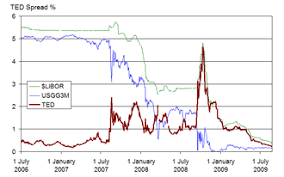On October 22, 2005, the United States experienced a significant event in the realm of tropical storms and hurricanes. This date marked the establishment of several records and milestones related to tropical storm activity, showcasing the power and impact of these natural phenomena.
One of the notable records set on October 22, 2005, was the formation of Tropical Storm Alpha in the Atlantic Basin. This marked the first time in history that the Atlantic hurricane season had exhausted the designated list of storm names and had to resort to using letters of the Greek alphabet to name subsequent storms. The naming convention had been in place since 1953, and the occurrence of Tropical Storm Alpha was unprecedented, highlighting the exceptional activity of the 2005 hurricane season.
The 2005 hurricane season was particularly active and destructive, with numerous powerful storms wreaking havoc across the Caribbean and the Gulf Coast of the United States. The season produced a record-breaking 28 named storms, surpassing the previous record of 21 named storms set in 1933. The intensity and frequency of these storms led to widespread devastation and loss of life, making the 2005 hurricane season one of the most memorable and impactful in recent history.
In addition to Tropical Storm Alpha, October 22, 2005, also saw the formation of Tropical Storm Beta in the Caribbean Sea. This marked the first time in history that two tropical storms had formed simultaneously in the Atlantic Basin using Greek alphabet names. The occurrence of both Alpha and Beta on the same day further emphasized the extraordinary nature of the 2005 hurricane season.
The 2005 hurricane season was dominated by several notable storms, including Hurricane Katrina, which made landfall in the United States on August 29, 2005, causing catastrophic damage along the Gulf Coast, particularly in New Orleans. The storm resulted in the loss of thousands of lives and caused billions of dollars in damages. Hurricane Katrina served as a stark reminder of the devastating power of tropical storms and exposed the vulnerabilities of coastal communities in the face of such events.
The 2005 hurricane season also witnessed Hurricane Wilma, which became the most intense hurricane ever recorded in the Atlantic Basin, with a minimum central pressure of 882 millibars. Wilma's strength and destructive force were a testament to the power that tropical storms can unleash when conditions align.
The records and milestones set on October 22, 2005, underscore the significance and impact of tropical storms in the United States. The 2005 hurricane season served as a wake-up call, highlighting the need for better preparedness, response, and mitigation efforts in the face of such events. It prompted discussions and actions to improve disaster response systems, strengthen infrastructure, and enhance public awareness and education regarding tropical storm hazards.
The lessons learned from the 2005 hurricane season have had lasting effects on coastal communities and emergency management practices. They have spurred advancements in meteorological forecasting, early warning systems, and evacuation protocols. The records set on October 22, 2005, serve as a reminder of the ongoing need for vigilance and preparedness in the face of tropical storms and hurricanes.
October 22, 2005, will forever be remembered as a defining moment in the study of tropical storms and hurricanes. The records established on this day highlight the extraordinary nature of the 2005 hurricane season and the need for continued efforts to understand, predict, and mitigate the impacts of these powerful natural phenomena.






